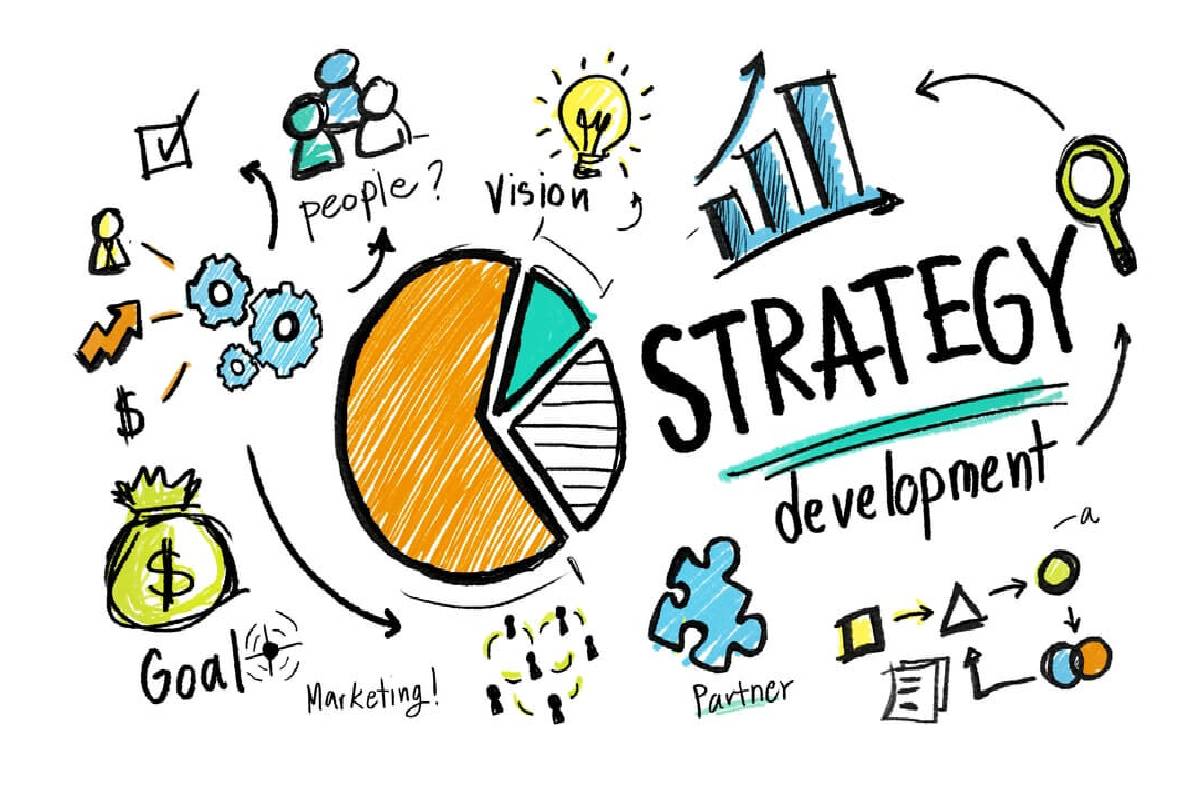Table of Contents
Strategy Definition
In business, the Strategy traditionally understood to mean the (mostly long-term) planned behavior of companies to achieve their goals.
In this sense, the corporate Strategy in corporate management shows how a medium-term
What to consider When implementing a strategy?
- The goal is defined; the plan created, what now? Now it is time to set deadlines and priority dates and to include benchmarks.
- The available resources must also check and, if necessary, supplemented. In addition to operational funds, this also includes a corresponding financial scope (budget), a sufficient number of employees, and available specialist knowledge.
- Furthermore, it is to determine at what intervals and in what way the development of the project should monitor and what has to do in the event of deviations from the plan.
- Appropriate motivational techniques, the creation of performance incentives, and the effective flow of information and communication are also essential.
What are the Characteristics of Strategy?
The first characteristic of corporate Strategy is that the object or reference object of the corporate Strategy is the whole company in comparison to other strategies.
- Therefore, the field of activity in the entire company is not just a functional area. The strategies are also geared towards the future.
- These determine future goals and the ways to achieve these goals. In this sense, corporate strategies reflect a company’s values and are of great importance for the company’s assets and earnings.
- Three characteristics should consider during strategy development: connection with internal resources, analysis of the environment (opportunities and risks of a company), and competitors.
- Also, corporate strategies can understand as a process. It includes the decision of the strategic vision, formulation of the action plans, implementation, and control.
The worst seven mistakes in strategy development
1. You have no real vision
- Developing a corporate strategy is like sailing your ship out of port, but you don’t know where to go. That goes wrong.
- Perhaps you also have a vision, but as an entrepreneur, you are no longer behind this vision. It is a pro forma vision.
- The company vision no longer fits your personal goals. Even then, it won’t be easy to develop a successful strategy because you will be instrumental in implementing this Strategy.
2. Focus on sales and profits
- Economic success is the result of the right Strategy. The purpose of the company is not profit or sales but benefits for the customer.
- Those who focus on maximizing profits inevitably deal primarily with themselves and only then with the wishes and needs of their customers. Do not do that.
- If you always try instead to increase the benefit of your target group, you will automatically achieve your profit.
3. Not being able to say NO
- You want to please all customers and do not focus on your target group. You are afraid to focus. It means that your company is not perceived as unique but as interchangeable.
4. Lack of simplicity
- Your Strategy must be simple and clear: it must be understandable. Otherwise, it won’t be easy to get your employees on board.
- After all, they have to support you in implementing your Strategy.
5. The Strategy is only in the mind of the entrepreneur
- If you force yourself to write your Strategy down, you will quickly notice that things that seem apparent to you in your mind are not properly thought out.
- It also helps you if you have your Strategy in writing if you want to convince others, e.g., your employees or partners, of your Strategy.
- It’s your job as an entrepreneur to keep talking about the vision and the Strategy – until it comes out of your ears – and then you still haven’t talked enough about it to your employees.
- You have to carry the vision into your company, and – you have to support your employees and help you to define and implement goals and measures from the Strategy.
6. optimistic planning
- Everything takes longer than you think! Building up a company doesn’t happen overnight. In the beginning, you invest a lot of time and work without being immediately rewarded by the market.
- It often happens that corporate forecasts are too optimistic. They will not come in as quickly as hoped.
- That is why you always expect delays in your projects and planning. Plan enough time and liquidity buffers and assume that everything will take longer than you think.
7. The belief in an overnight roaring success
- Success is a marathon, not a short distance run. If a star or successful company appears suddenly out of the blue, you can assume that this success was the result of a lot of work and many failures.
- Starting a business and running it successfully is no easy job. It is obvious everyone goes through ups and downs.


